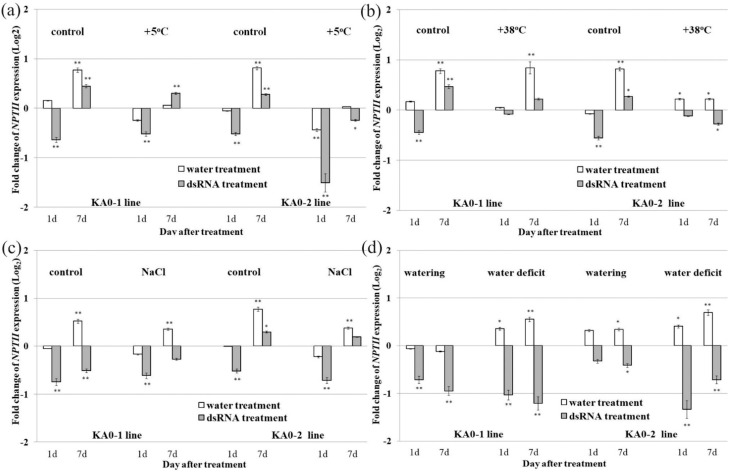Figure 4.
The effect of salt, heat, cold, and soil drying on the dsRNA-induced NPTII suppression in 4-week-old lines of Arabidopsis thaliana. Quantification the NPTII mRNA levels (log2) in the KA0-1 (a) and KA0-2 (b) lines of A. thaliana in response to foliar application of sterile filtered water (water treatment) or NPTII-encoding dsRNA (dsRNA treatment) relative to NPTII mRNA level in the same plants before treatments cultivated under different stress conditions. (a) For cold stress, the plants were stressed at +5 °C for 2 h after the dsRNA treatment; (b) for heat stress, the plants were stressed at +38 °C for 2 h after the dsRNA treatment; (c) for salt stress, the plants were well-irrigated with 200 mM NaCl solution for 2 h after dsRNA treatment; (d) for assaying the importance of soil moisture, the plants were not watered for 3 weeks or well-watered 1 d before the dsRNA treatments. For control conditions (control), the plants were normally cultivated at 22 °C. The abaxial and adaxial surface of the leaves was treated by sterile soft brushes with 0.35 µg/µL of NPTII-dsRNA or water (100 µL per individual plant). RNA was isolated from the same individual plant before, 1 day, and 7 days after treatments (two independent experiments). qRT-PCR data are presented as mean ± SE. *, **—significantly different from the untreated plant at p ≤ 0.05 and 0.01, respectively, according to the Student’s t-test.

